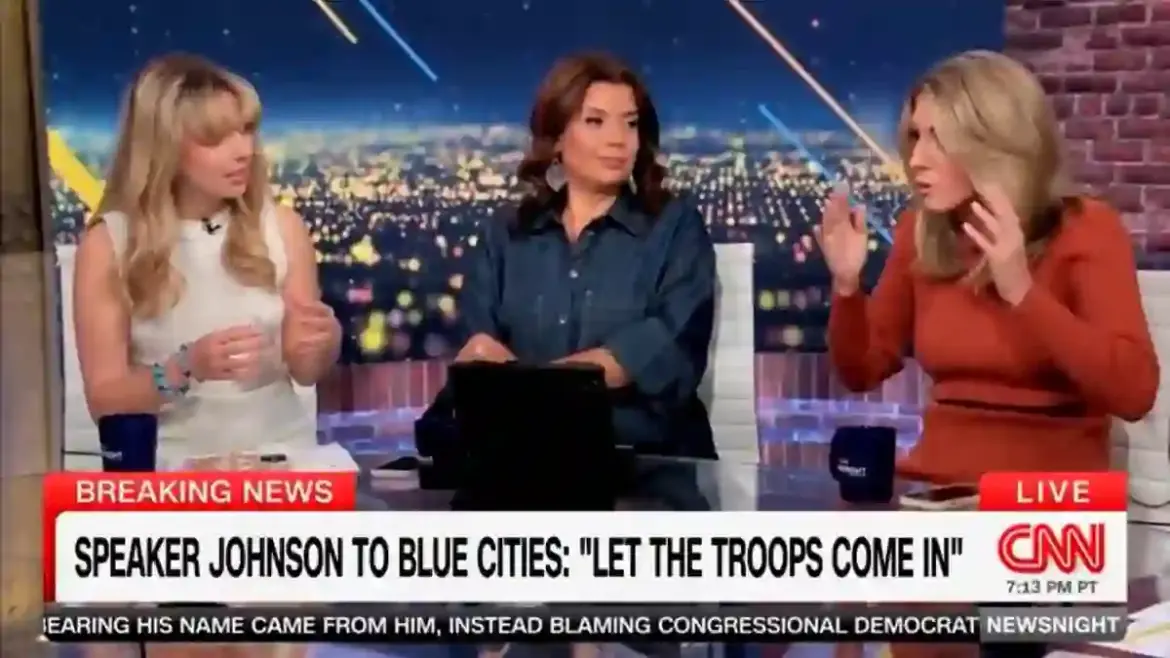The murder of 23-year-old Ukrainian immigrant Iryna Zarutska on a Charlotte train last month has turned into more than just a local tragedy.
It has become a national flashpoint, with political commentators, media outlets, and government officials clashing over how the story is being told—and, in some cases, why it wasn’t widely reported until weeks later.
The attacker, 34-year-old Decarlos Brown Jr., is a career criminal with a long rap sheet and a history of schizophrenia.
Newly released surveillance footage captured the horrifying moment Zarutska was stabbed multiple times while cowering in fear, an attack that has shocked viewers across the country.
CNN’s Van Jones Shifts Focus to Mental Health
On CNN, political commentator Van Jones urged the public not to jump to conclusions about Brown’s motives.
While acknowledging the brutality of the murder, Jones said, “This man is hurting. Hurt people hurt people.”
He emphasized that mental health struggles were at the heart of the tragedy and criticized conservatives for portraying the crime as racially motivated.
Jones specifically called out figures like Charlie Kirk, who suggested Zarutska was targeted because she was white.
While the video contains audio of someone saying “got that white girl,” it remains unclear if Brown himself made the remark.
Heated On-Air Exchange Over Accountability
The discussion grew even more tense on Tuesday when CNN’s Abby Phillip challenged Caroline Downey of The National Review, who argued that Brown should never have been free in the first place given his violent criminal past.
When Downey suggested Brown should have been “locked away for life” because of the danger he posed, Phillip pushed back, asking if she meant that people should be imprisoned simply for having schizophrenia.
Former Clinton aide Keith Boykin and Illinois congressional candidate Kat Abughazaleh quickly jumped in, accusing Downey of stigmatizing mental illness.
Downey later clarified, saying she meant institutionalized, not jailed—but stood firm that Zarutska’s death could have been prevented.
Media Coverage Faces Criticism
The controversy isn’t just about what happened on that train—it’s also about how the story has been covered.
CNN’s Brian Stelter accused conservative outlets of seizing on the killing for political purposes, saying the footage was turned into a “MAGA talking point” and used to stoke racial fears.
Meanwhile, mainstream publications like The New York Times, The Wall Street Journal, Politico, and Axios were called out for their late coverage.
Most of these outlets only reported on the incident this week, weeks after it occurred.
This delay prompted a sharp rebuke from White House Press Secretary Karolina Leavitt, who accused the press of ignoring Zarutska’s murder because it didn’t fit what she described as the media’s “preferred narrative.”
The Tragic Attack and Legal Fallout
The stabbing happened on August 22 on a South End light rail train in Charlotte.
Zarutska had only just sat down when Brown suddenly launched his attack, stabbing her three times in the neck and hands with a pocket knife.
Witnesses and video evidence show the young woman terrified and defenseless in her final moments.
Authorities have now announced that Brown faces federal charges—a move that raises the possibility of the death penalty if he is convicted.
What Comes Next
As the case moves through the courts, the national conversation shows no signs of slowing.
For some, the murder highlights failures in the criminal justice system and mental health care.
For others, it has become a lens to debate media bias, political agendas, and race relations in America.
What is clear, however, is that Iryna Zarutska’s death has left a lasting mark—not just on her family and community, but on the national stage, where her story continues to spark fierce and deeply divided reactions.
